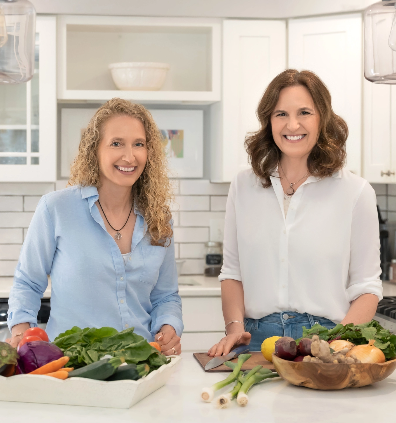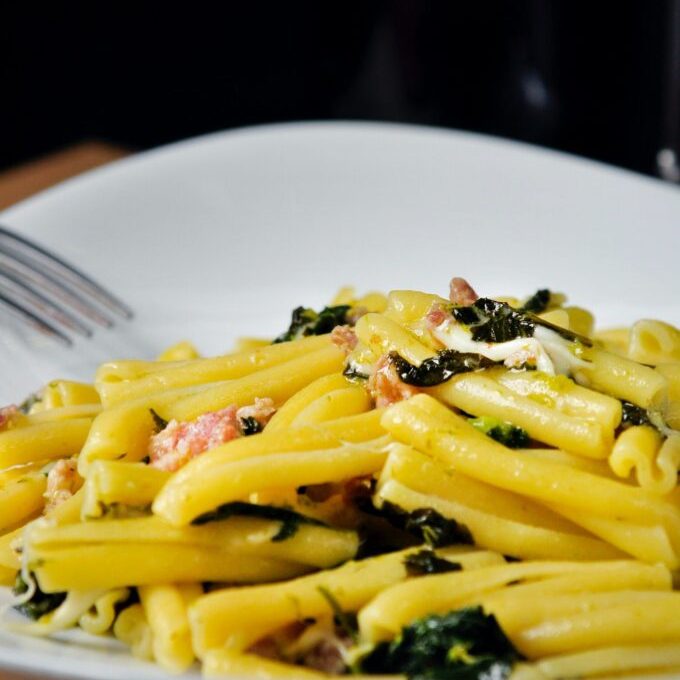Best diet for women over 50 – does one size fit all?
Do you follow what we call the squirrel diet? This is the scenario where you’re constantly distracted by different diets, thinking hoping the next one will be THE one that will finally work for you.
Well, we want you to stop that right now! And we encourage you to take a more holistic approach.
First off, let’s talk about the verbiage – the word diet in and of itself is really just about the food you eat from day to day. But it takes on a whole other meaning when applied to weight loss. This is the “diet” term we have an issue with.
Diet definition #1: the kinds of food that a person, animal, or community habitually eats. No emotion connected, not negative or positive.
Diet definition #2: a special course of food to which one restricts oneself, either to lose weight or for medical reasons. Has more of a negative, restrictive connotation.
Our advice is to reclaim the first definition when referring to the word diet!
So basically a diet is the way a person eats, or an eating plan. And in order to find what’s going to work for you to help you lose weight, feel good in your body, and keep you healthy and energized, we have found over the years that there are really 3 essential criteria to take into account.
By embracing our 3 criteria, you’ll gain awareness for a clear path forward to losing weight and staying healthy forever. We share these criteria in our Best Diet for Women Over 50 video, which you can access HERE.
We are big picture thinkers and when we step back and look at what is really necessary for a nourishing diet, these are the 3 criteria to pay close attention to.
1. Must be sustainable. It has to work with your lifestyle AND it has to allow for wiggle room for special occasions or outings where you may go a little off plan without throwing you completely off track. A diet that cuts calories too much and leaves you hungry and cranky–is that something you can see doing for the rest of your life?
It is important to ask yourself, is this a short term fix or can I do this long term? Remember short term fixes bring short term results.
2. Takes nutrition into account. (High fiber, low processed foods and sugar, variety, balance, nutrient dense).
As nutritionists, we are going to advocate for an eating plan/diet that is healthy! Again, although it can be tempting to just focus on weight loss, you miss the big picture if that’s the only criteria you are using.
Let’s take this back to the diet definition again and for fun, think about animals. Dogs eat dog food, cats, cat food, birds, gerbils, etc. If you feed a rabbit dog food, it will get very sick. That’s not its native diet.
Through our lives and as we age, we need to incorporate REAL, whole foods that our human bodies recognize.
This will also help prevent issues associated with aging that are growing concerns such as osteoporosis, heart disease, or diabetes, and also support brain health.
Programs like Nutrisystem or Jenny Craig that slash calories and are filled with processed foods and chemicals may get some weight off short term, but will leave you in the lurch as far as nourishing your body and offering you good quality of life.
If you’ve done these programs before, think about how they worked out. Though your goal may not have been to stay on these programs long term, they don’t teach you how to sustain good eating habits for life with real food you encounter every day.
With that in mind, it’s so important at this stage in our lives to look for something that offers balanced meals that meet our needs for protein (which are higher after menopause), good fats and healthy carbs, has robust fiber, and is mostly free of chemicals and added sugars.
These are foods that make us feel good, boost our metabolism, give us energy, and help reduce inflammation that is at the root of so many chronic diseases.
So ask yourself, is this going to address my nutrition needs?
3. Incorporates habit changes… Along with sustainability and nutrition, you can’t ignore the need to incorporate some sort of habit change. Chances are you have a pretty good idea of what to eat and what not to eat, but unfortunately falling back on old habits have brought back old results.
When we work on new habits everything becomes much easier.
So what are some examples of these habit changes?
We have found that focusing on the HOW has been a huge game changer for our clients. So what do we mean by that? Well, increased awareness of true hunger and fullness cues for one. So many women we work with eat by the clock, or their environment, where they are triggered to eat from outside forces like the see-food diet (see food, eat it). Instead of tuning into their body signals, we guide women to tune into their BAM, or body awareness muscle, where they learn to eat according to their internal cues instead. This is so important.
Learning to eat mindfully is another powerful strategy that is a game changer when it comes to overeating. This includes slowing down, taking time out to eat, chewing well.
Habit changes also include the art of planning ahead. This is vital as it makes the whole meal process so much easier and eliminates the “I’ll just pick up something fast” habit. Tying new habits to old ones so you can get things done regularly makes everything easier to incorporate.
So, ask yourself, is this going to show me how to incorporate new habits so I don’t fall back on old ones?
In summary, most of the time it is NOT necessary to go on an extreme, depriving diet. We have had many clients succeed with much less restriction, but when they focus on good nutrition and habit changes, they find that this is something they can do long term.
Now we take all of these into account and more in our 3 month Simply Nourished Solutions program. It is truly a remarkable holistic program and the transformations we have seen have been amazing.
Whether that is right for you or not, we want you to really think about whether a “diet” is going to be sustainable, if it takes into account your nutrition needs as you age, and if it will address changing your habits from the ground up so that you can make changes that give you permanent results.

THE NOURISHING GURUS
Jane and Stephanie, creators of The Simply Nourished Solution™, are nutritionists who help women over 50 go from overweight, frustrated, and inflamed to lighter and healthier so they can be more active, feel good in their bodies, and live the second half of life with energy and confidence. Their 3-pronged approach, which can fit into any lifestyle, encompasses not only wholesome energizing foods but powerful habit and mindset shifts.
CATEGORIES
What’s blocking your weight loss success?

You can still lose weight after 50 - even if you’ve been trying your whole life! Find out what’s standing between you and the healthy weight, energy and freedom you’re looking for.
Supported weight loss for women over 50
If you’re struggling to nourish yourself after menopause, our Simply Nourished Solution™ Signature Weight Loss Program offers the tools, strategies and shifts you need to stop yo-yo dieting, permanently lose weight, and feel better than ever in your 50’s, 60’s and beyond.


